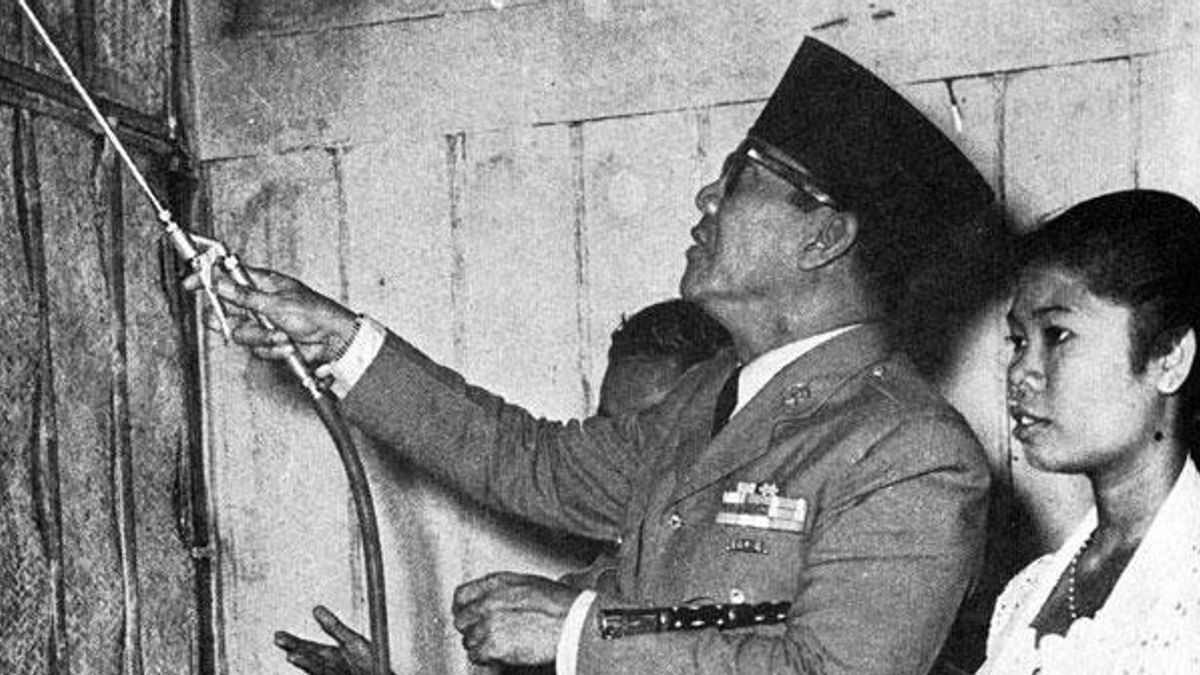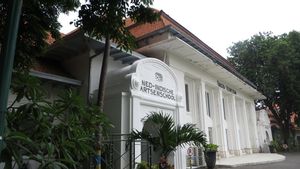JAKARTA History today, 65 years ago, September 17, 1958, the Old Order Government approved the plan of the Ministry of Health to cooperate with the World Health Organization, WHO and the International Cooperation Administration (ICA) to eradicate the malaria outbreak from Indonesia. The plan was approved because Indonesia had lost a lot due to malaria.
Previously, malaria outbreaks have often been a frightening scourge since the Dutch colonial era. The malaria outbreak has brought many disaster. Every day the death toll from malaria increases. Even hospitals and funerals are full.
The Dutch trading company, VOC, once mismanagement related to Batavia city planning (now: Jakarta). Construction and land clearing are perpetuated massively. Factories grow, as well as agricultural and plantation land.
This condition was exacerbated by Batavian residents who neglected to protect the environment. A city that has become an expensive price that must be paid. The Company doesn't care. As long as profit is, destructive behavior continues. Problems arise. The narrative of neglecting the environment forms Batavia like a comfortable home for a deadly plague.
Malaria, especially. The presence of the malaria outbreak has actually become like an angel of death. No one in Batavia is able to guess when malaria can attack the whole city. They only know many of their colleagues who are fine today, then die tomorrow.
This condition made new problems arise. Hospitals and funerals are full. The same condition also took place in other colonies of the Company, Lampung to Semarang. This condition lasted for a long time until the Company was replaced by the colonial government of the Dutch East Indies.
The change of power in fact does not affect much. Colonizers only think about profit. The fate of the people is ignored. In fact, until Indonesia is independent, the problem of malaria prevention is never finished.
The VOC headquarters in Batavia now have a bad reputation as a source of the deadly plague that has been maintained until the 19th century. Fish ponds built along the coast of Batavia are ideal breeding grounds for mosquitoes anopheles. Since 1733, the city has spread a deadly malaria outbreak.
Between 1733 and 1795, about 85 thousand VOC soldiers and officials in Batavia died from this epidemic and similar causes. In 1734, one day of reading prayers and fasting was announced to ask God to eliminate the outbreak from this city. The application of the Batavian population, who is often considered a lecherous and unbelian immoral immoral, did not change the situation, "explained historian MC Ricklefs in the book History of Modern Indonesia 1200-2008 (2008).
The malaria problem then became the homework of the Indonesian government which was only old as corn. The countermeasures taken were still on a small scale. Like digging a hole to close a hole. The initiation of massive countermeasures was only rolled out when Indonesia began to be recognized for its sovereignty by the Dutch in 1949.
This admission made Indonesia get support from various world-class organizations. WHO and ICA, for example. The presence of WHO and ICA has a big influence. Both want to help Indonesia free from the malaria outbreak.
The Ministry of Health also formed a Malaria Institute to cooperate with WHO to combat the malaria outbreak. The results are brilliant. A war plan against the malaria outbreak is prepared. From large-scale spraying, to the stage of entomological investigation. Java, Bali, and Lampung are the main targets. After that, it was just another island.
The plan says Indonesia will be free from malaria in 1970. The Old Order government also fully supports the steps planned by the Ministry of Health in collaboration with WHO and ICA to destroy the malaria outbreak from Indonesian soil on September 17, 1958.
VOIR éGALEMENT:
Seeing successful efforts in efforts to eradicate malaria and insecticides, the government considers whether the nature of malaria eradication (malaria control), which until that time can be converted into eradication of malaria (malaria eradication). The inauguration of malaria from all over Indonesia.
Based on the results of the investigation and experience obtained, it can be concluded that malaria in Indonesia can occur. To achieve that, the way it works must be changed and updated altogether. Malaria institutions assisted by ICA and WHO are preparing plans for malaria eradication. The plan on September 17, 1958, was approved by the Council of Ministers, written in the book National Health History of Indonesia Volume 2(1978).
The English, Chinese, Japanese, Arabic, and French versions are automatically generated by the AI. So there may still be inaccuracies in translating, please always see Indonesian as our main language. (system supported by DigitalSiber.id)


















